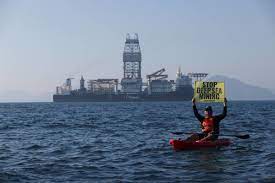International Seabed Authority : Roadmap

The International Seabed Authority’s member nations recently agreed on a two-year roadmap for the adoption of deep-sea mining regulations.
- International Seabed Authority (ISA) is an international organization established in 1994 to regulate mining and related activities in the international seabed beyond national jurisdiction, an area that includes most of the world’s oceans.
- The ISA came into existence upon the entry into force of the 1982 United Nations Convention on the Law of the Sea (UNCLOS), which codified international law regarding territorial waters, sea lanes, and ocean resources.
- Headquarters: Kingston, Jamaica
- As of May 2023, ISA has 169 Members, including 168 Member States and the European Union.
- The ISA is responsible for granting licenses and regulating activities related to the exploration and exploitation of mineral resources in the international seabed.
- Its ensures that these activities are carried out in a manner that protects the marine environment and promotes the equitable and efficient utilization of resources.
- The supreme authority of the ISA is the assembly, in which all ISA members are represented.
- The assembly sets general policies, establishes budgets, and elects a 36-member council, which serves as the ISA’s executive authority.
- The council approves contracts with private corporations and government entities for exploration and mining in specified areas of the international seabed.
- The council oversees implementation of the seabed provisions of the UNCLOS and establishes provisional rules and procedures (subject to approval by the assembly) by which the ISA exercises its regulatory authority.
- The secretary-general of the ISA is nominated by the council and is elected by the assembly to a four-year term.




